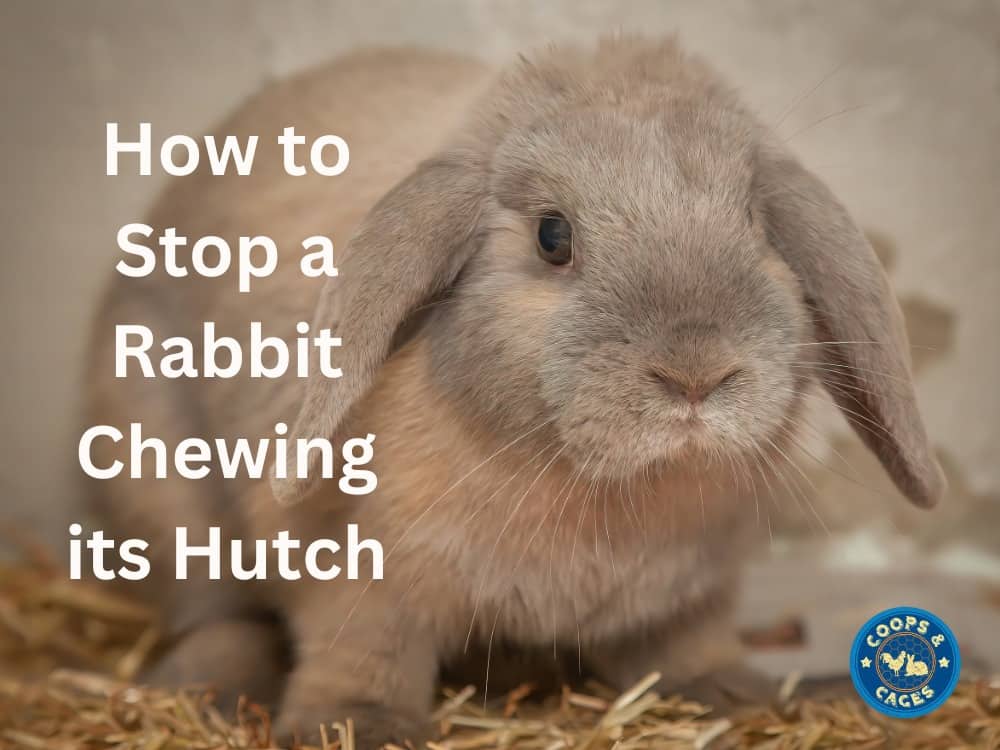Interesting, Rats
Effective Tips: How to Stop a Rabbit Chewing its Hutch
Rabbits are notorious nibblers but it’s not just carrots that catch their fancy. Some bunnies develop a fondness for gnawing on hutches. Today we’re diving deep into understanding how to stop a rabbit chewing its hutch.
While a little chewing is normal, excessive chewing of timber hutches can destroy them and become very expensive to replace.
In this blog post, we will discuss why rabbits chew on their hutches and outline five techniques showing how to stop a rabbit chewing its hutch.
Understanding Rabbit Behaviour
Rabbits are notorious chewers, and they need plenty of mental and physical stimulation to stay happy and healthy.
If a rabbit is bored or stressed, it may start to chew on its hutch or enclosure excessively and cause structural damage.
Here are some of the reasons why rabbits may chew on their hutch:
- Boredom: If a rabbit is left alone in their hutch all day, it may start to chew out of boredom.
- Stress: If a rabbit feels stressed, it may chew as a way to cope with its anxiety.
- Teeth-grinding: Rabbit teeth grow continuously throughout their lives, so they need to chew on something to wear them down. If rabbits don’t have anything to chew on, they may start to chew on their hutch or enclosure.
- Attention-seeking: If they are not getting enough attention from their owner, rabbits tend to act out as a way to get noticed including chewing on things they shouldn’t.
- Desexed: Neutered rabbits generally chew cage bars and panels less.
Deciphering why a rabbit is chewing on its hutch will help you choose which steps to take to prevent it from happening in the future.
Types of Netting for Cat Enclosures
When it comes to ensuring your beloved moggie is kept safe and sound outdoors, the kind of netting you opt for in their pen is essential. But what are the options available?
Choose a Safe Hutch
All rabbits will nibble a little on their hutch from time to time, so it is important to choose a hutch made from safe materials. Avoid hutches made from treated wood as it can be harmful to your rabbit if it ingests it.
Instead, choose a hutch made from non-toxic timber with a water-based stain. Good news – all Coops and Cages hutches are non-toxic and completely safe for bunnies or guinea pigs to gnaw on!
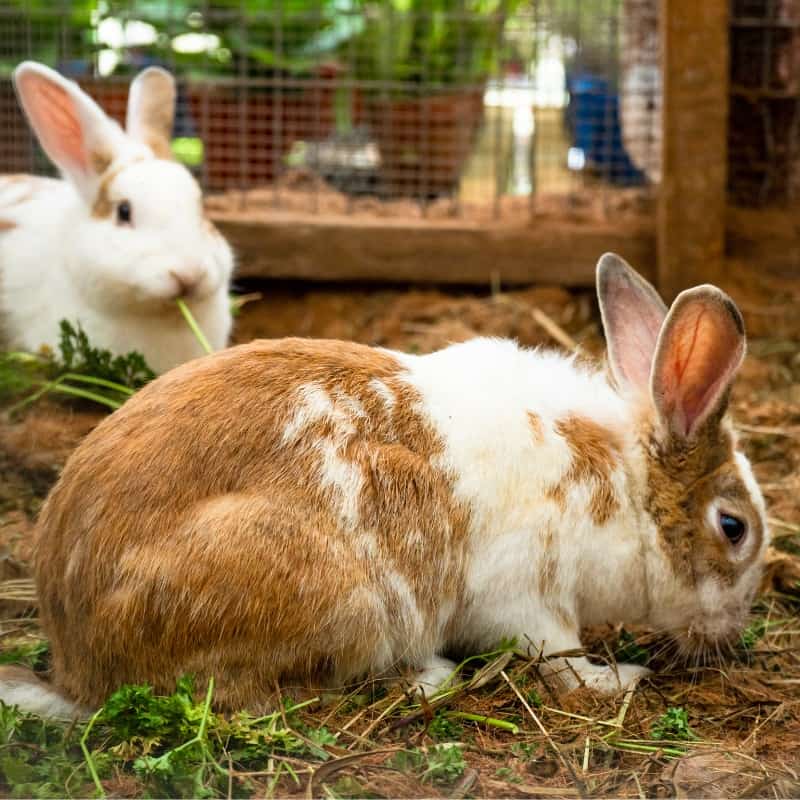
Restrict Access
If your rabbit’s chewing is causing serious damage to the hutch, you will need to take steps to stop it. Your first approach should be to block the rabbit’s access to the area it is chewing.
You can do this by attaching a sheet of wood, metal, wire mesh, or some hay over the chewed area. You could attach these with nails or cable ties purchased from hardware stores.
Alternatively, you can sit something solid in front of the chewed section such as a hay rack, water bottle or plastic hideaway igloo. It is important to make sure that your DIY rabbit barrier is secure and that the rabbit cannot get around it or dig under it.
If the rabbit is chewing on multiple specific areas, will need to set up multiple barriers. If the barrier is being chewed too, it will need to be regularly inspected and replaced.
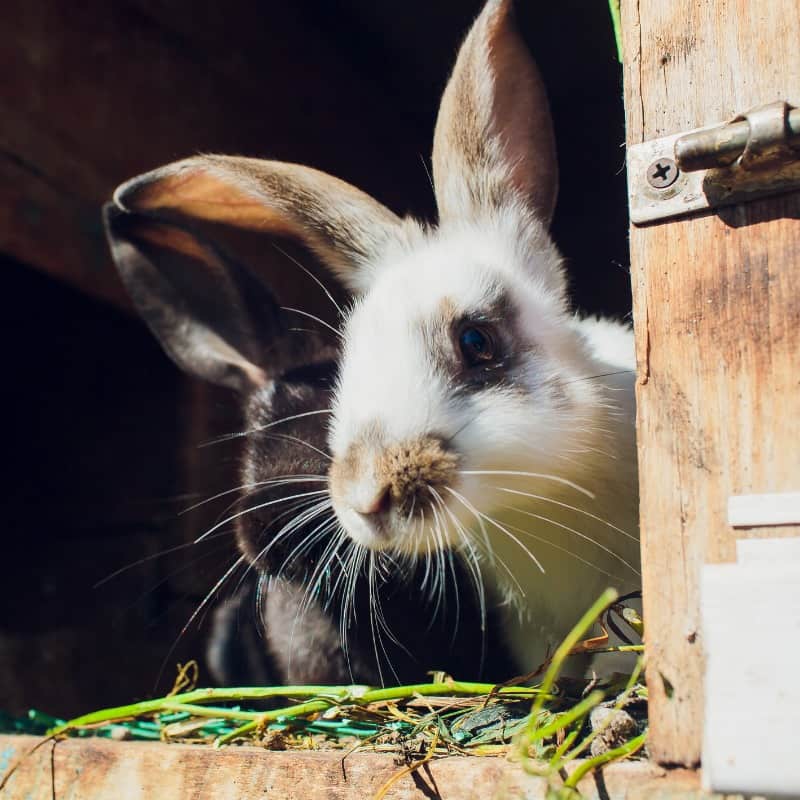
Offering Chewing Alternatives
One of the best ways to stop a rabbit from chewing on its hutch is to offer it chewing alternatives. When choosing chewing alternatives for your rabbit, it is important to select items that are safe and non-toxic.
You should also avoid giving your rabbit anything that is small enough to swallow or that could splinter.
Here are some specific examples of safe chewing alternatives for rabbits:
- Wooden chew toys: Provide chew toys made of wood that are specially designed for rabbits. These can be purchased from pet stores.
- Cardboard boxes: Cardboard boxes or toilet rolls are a great way to keep your rabbit entertained and they also provide a safe outlet for chewing.
- Willow sticks: Willow sticks are a natural toy that rabbits can safely chew.
- Timothy hay: Timothy hay is a good source of fibre for rabbits and it also helps to keep their teeth clean.
- Grass mats: Grass mats are a safe and natural way for rabbits to chew.
Make sure the chewing alternatives are the right size for your rabbit. Provide plenty of chewing alternatives to work out which type your rabbit prefers. Regularly rotate toys to keep your bunny interested and increase your success rate.
With a little patience and effort, you can teach your rabbit to chew on the right things.
Anti-Chew Sprays
If distractions aren’t enough, consider using safe deterrents that discourage your rabbit from chewing hutch panels.
Many pet owners report that bitter sprays designed specifically for pets work wonders. They are usually apple, citrus or white vinegar spray.
Spray your rabbit repellent directly onto the parts of the rabbit hutch where your pet tends to chew, and they’ll soon learn to avoid those areas.
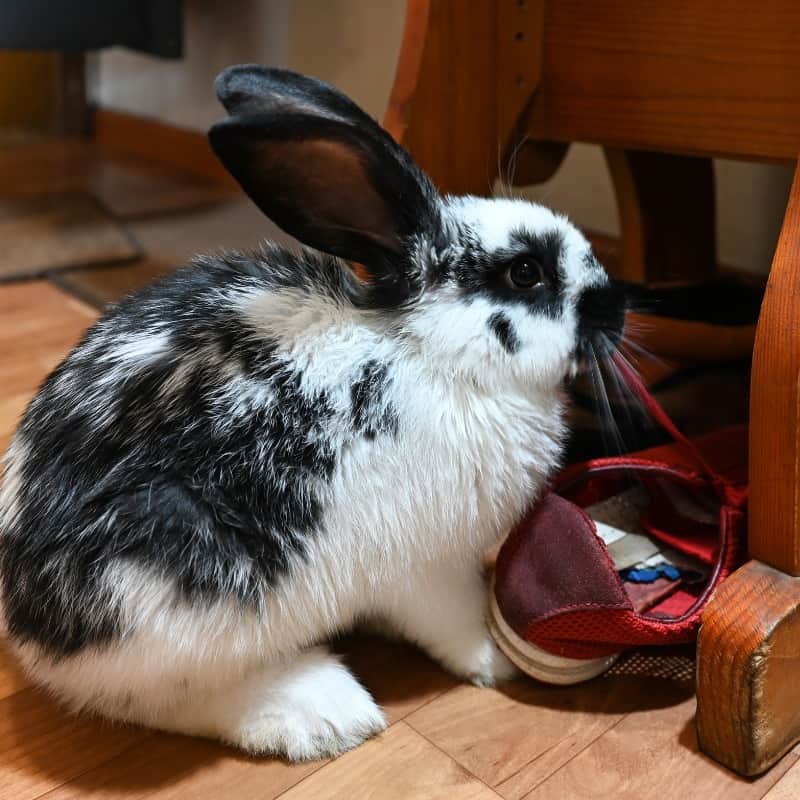
Training Your Rabbit
You can train your rabbit to stop chewing its hutch, however this requires a lot of time and patience. If you see your rabbit chewing the hutch, gently pick your bunny up and direct it towards something more appropriate to chew, such as a wooden chew toy.
When your rabbit chews on the right thing, reward it with positive reinforcement. Use a variety of rewards until you work out what your rabbit responds to best, including praise, pats and treats.
It is important to be consistent and practice regularly. Rabbits do not train as quickly as dogs.
Never use punishment when your rabbit does the wrong thing. This won’t help modify behaviour. Punishment will make your rabbit frightened and aggressive, possibly leading to more chewing from anxiety.
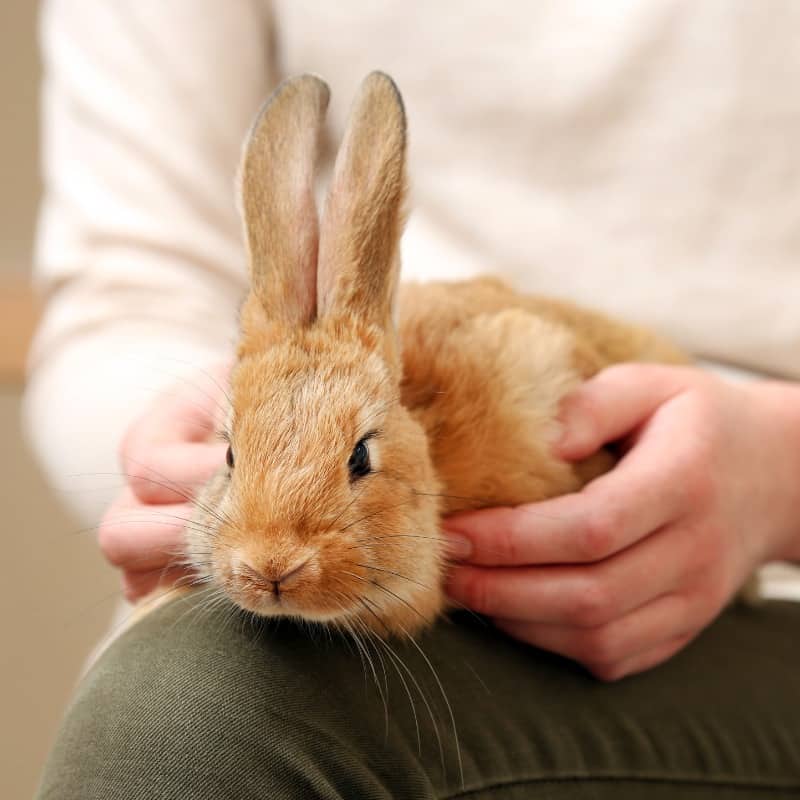
Exercise Regularly
Rabbits are naturally active, social animals and they need plenty of exercise to stay healthy and happy. Exercise can help to burn off energy, reduce stress, and prevent boredom, all of which can lead to chewing.
There are many ways to exercise your rabbit, such as:
- Letting them run around in a safe space, such as a fenced-in yard, exercise pen, puppy pen, or the living space in your home.
- Playing with them with toys, such as balls or tunnels.
- Teaching them tricks.
It is important to provide your rabbit with at least 3-4 hours of exercise per day. Start with short periods of exercise and gradually increase the amount of time as your rabbit gets used to it.
Make sure the exercise space or living room is safe and secure. Supervise your rabbits when they are exercising to make sure they do not get hurt.
By providing your rabbits with plenty of exercise, you can help prevent them from chewing on their hutch and keep them happy and healthy.
Mental Stimulation
In addition to exercise, rabbits also need plenty of mental stimulation. This can be provided by:
- Giving them toys to chew on.
- Hiding treats around their environment for them to find.
- Introducing them to new objects, people and experiences.
Mental stimulation can help to keep your rabbit from getting bored, which can lead to chewing.
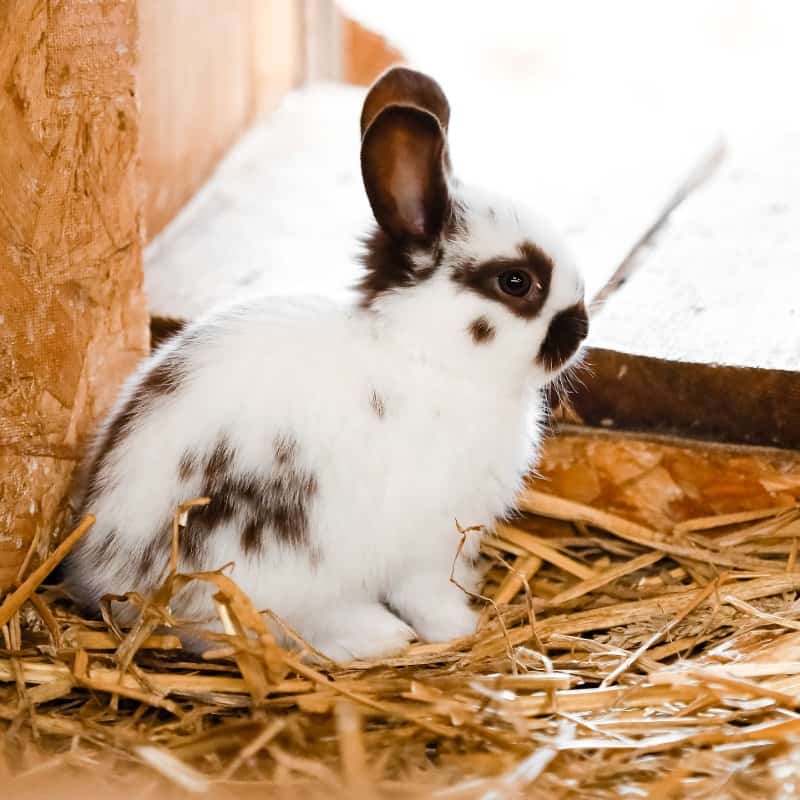
FAQs in Relation to How to Stop a Rabbit Chewing Its Hutch
Why Is My Rabbit Chewing Its Hutch?
Rabbits chewing on hutches may be bored, experiencing a lack of exercise, or need mental stimulation. Naturally chewing also helps wear down a rabbit’s teeth.
How Can I Prevent My Rabbit From Being Destructive?
To prevent destructive behaviour, provide plenty of toys and materials to gnaw on. Ensure they get regular exercise and mental stimulation.
How Do I Stop My Rabbit From Chewing On Plastic?
Deter your bunny from nibbling on plastic by offering alternatives like wooden blocks. You can also use bitter apple spray as a deterrent if necessary.
Jordan’s Wrap
Rabbits are notorious chewers and they need plenty of mental and physical stimulation to stay happy and healthy.
A common reason rabbits chew cages excessively is that they are feeling bored or stressed.
All pet rabbits will chew a little so choose a quality timber hutch or run from Coops and Cages that is safe for your rabbits to chew on.
When working out how to stop a rabbit chewing its hutch, try blocking access, offering chewing alternatives, using deterrent sprays, training, and offering your rabbit plenty of exercise and mental stimulation.
By following these tips, you can help to stop your rabbit from chewing its hutch and keep it happy and healthy.
For more information on rabbit or guinea pig chewing, visit our Rabbit Learning Centre or Guinea Pig Learning Centre.



